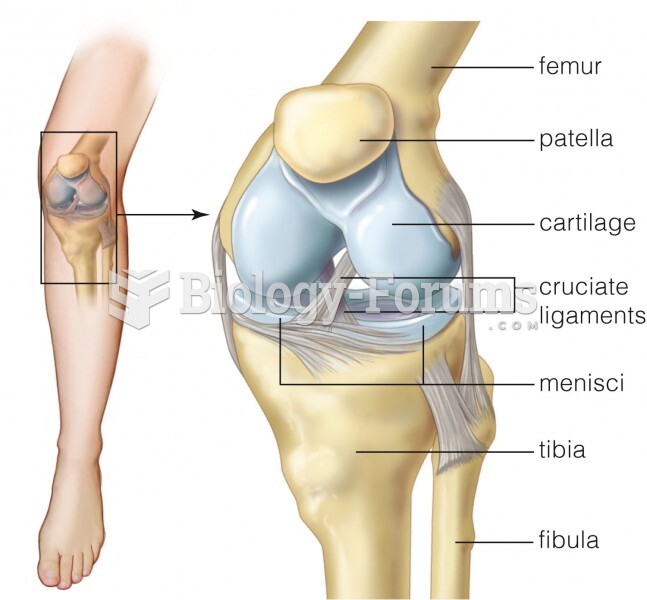This topic contains a solution. Click here to go to the answer
|
|
|
Did you know?
Acetaminophen (Tylenol) in overdose can seriously damage the liver. It should never be taken by people who use alcohol heavily; it can result in severe liver damage and even a condition requiring a liver transplant.
Did you know?
Human kidneys will clean about 1 million gallons of blood in an average lifetime.
Did you know?
Malaria mortality rates are falling. Increased malaria prevention and control measures have greatly improved these rates. Since 2000, malaria mortality rates have fallen globally by 60% among all age groups, and by 65% among children under age 5.
Did you know?
Excessive alcohol use costs the country approximately $235 billion every year.
Did you know?
Cytomegalovirus affects nearly the same amount of newborns every year as Down syndrome.







